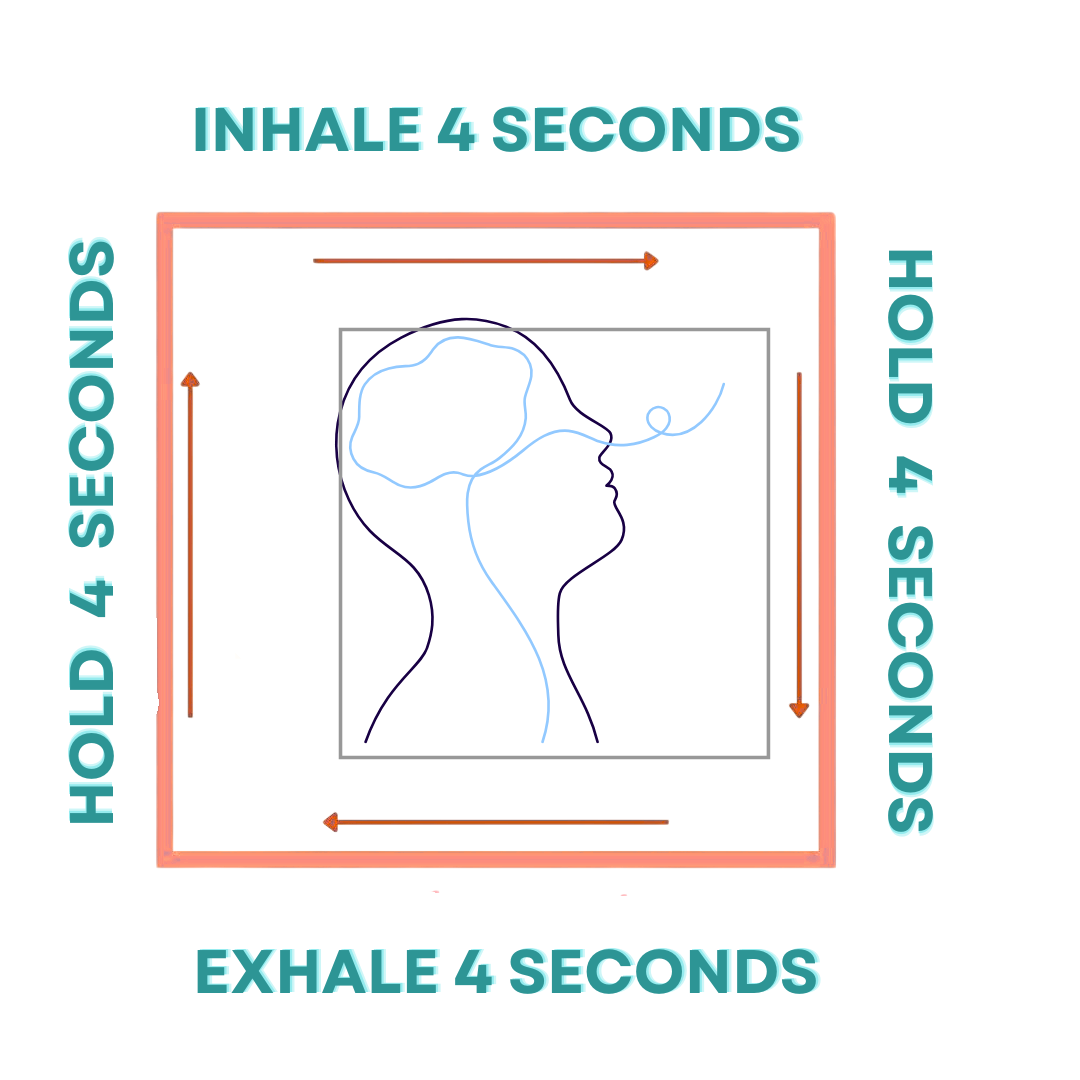 Mind
Mind
- Digital and Modern Well-being
- Mental Health and Emotional Well-being
- Mind-Body Connection and Holistic Health
- Parenting and Family
- Personal Growth and Development
- Relationships and Social Well-being
- Stress and Relaxation
- Therapeutic and Creative Practices
- Trauma and Recovery
- Work, Productivity, and Discipline
 Body
Body
 Fitness
Fitness
 Food
Food
 Beauty
Beauty
Box Breathing for Stress Relief: A Simple Technique for Calm

Box Breathing
Why Choose Box Breathing?
Reduced Anxiety
Experience less stress in your daily life. Box breathing helps quiet the mind and calm your emotions.
Clearer Focus
Improve your concentration effortlessly. This technique sharpens your mental clarity and keeps distractions at bay.
Better Well-being
Boost your overall health. Regular practice of box breathing cultivates a balanced state of mind.
Improved Oxygen Flow
Enhance your breath control. This method ensures you get more oxygen with every breath, to energize your body.
Box Breathing for Stress Relief: A Simple Technique for Calm
In today’s fast-paced world, stress can feel like a constant companion. Deadlines, meetings, and endless to-do lists can leave you feeling overwhelmed and exhausted. But what if there was a simple, effective tool you could use anytime, anywhere to calm your mind and regain control? Enter box breathing—a powerful, evidence-based technique used by Navy SEALs, athletes, and CEOs to manage stress and enhance focus.
In this article, you’ll learn:
What box breathing is and why it works.
Step-by-step instructions to master the technique.
Science-backed benefits of box breathing for stress relief.
Tips to integrate box breathing into your daily routine.
What is Box Breathing?
Box breathing, also known as square breathing, is a simple yet powerful technique that involves inhaling, holding, exhaling, and holding your breath in equal counts. The name comes from the visualization of tracing a box: each side represents one part of the breathing cycle.
This technique is particularly effective because it:
Balances the nervous system: It activates the parasympathetic nervous system, which calms the body and mind.
Improves focus: The structured pattern helps anchor your attention, reducing mental clutter.
Reduces stress hormones: Studies show that controlled breathing lowers cortisol levels, the body’s primary stress hormone.
How to Practice Box Breathing
Box breathing is easy to learn and can be done anywhere. Here’s a step-by-step guide:
Step 1: Find a Comfortable Position
Sit or stand in a relaxed position. Keep your back straight and your feet flat on the floor.
Step 2: Begin the Box Breathing Cycle
Inhale through your nose for 4 seconds.
Hold your breath for 4 seconds.
Exhale through your mouth for 4 seconds.
Hold your breath for 4 seconds.
Step 3: Repeat
Continue the cycle for 3-5 rounds or until you feel calm and centered.
Pro Tip: Visualize tracing a box as you breathe. Imagine moving up one side for the inhale, across the top for the hold, down the other side for the exhale, and across the bottom for the final hold.
Why Box Breathing Works: The Science
Box breathing works by engaging the vagus nerve, a key component of the parasympathetic nervous system. When activated, the vagus nerve signals your body to relax, lowering your heart rate and blood pressure.
A 2017 study published in Frontiers in Psychology found that controlled breathing techniques like box breathing significantly reduce stress and improve emotional regulation. Another study in Harvard Business Review highlighted how Navy SEALs use box breathing to stay calm under pressure.
Dr. Emma Seppälä, a psychologist and author of The Happiness Track, explains:
“Box breathing is a quick and effective way to reset your nervous system. It’s like hitting a ‘pause’ button on stress.”
Tips for Integrating Box Breathing into Your Day
1. At Your Desk
Feeling overwhelmed at work? Take a 2-minute box breathing break to reset your focus.
2. Before a Big Meeting
Use box breathing to calm pre-meeting jitters and boost confidence.
3. Before Bed
Practice 5 rounds of box breathing to unwind and prepare for restful sleep.
4. On the Go
Stuck in traffic or rushing between appointments? Box breathing can help you stay calm and centered.
FAQs About Box Breathing
Q: Can I adjust the count if 4 seconds feels too long?
A: Absolutely! Start with 2-3 seconds and gradually increase as you build lung capacity and comfort.
Q: What if I feel lightheaded?
A: Lightheadedness can happen if you’re new to breathwork. If this occurs, pause and return to normal breathing. Start with shorter sessions and build up over time.
Q: How often should I practice box breathing?
A: Even 1-2 minutes daily can make a difference. For best results, aim for 5-10 minutes daily or whenever you feel stressed.
Take a Deep Breath and Start Today
Stress doesn’t have to control your life. With box breathing, you have a simple, effective tool to calm your mind, sharpen your focus, and regain control—all in just a few minutes a day.
Start with 1-2 rounds of box breathing today and notice how you feel. Remember, consistency is key. The more you practice, the more benefits you’ll experience.
Ready to dive deeper? Download our free guide, join our webinar, or explore our recommended apps to take your breathwork practice to the next level. Your journey to a calmer, more centered life starts with a single breath.
